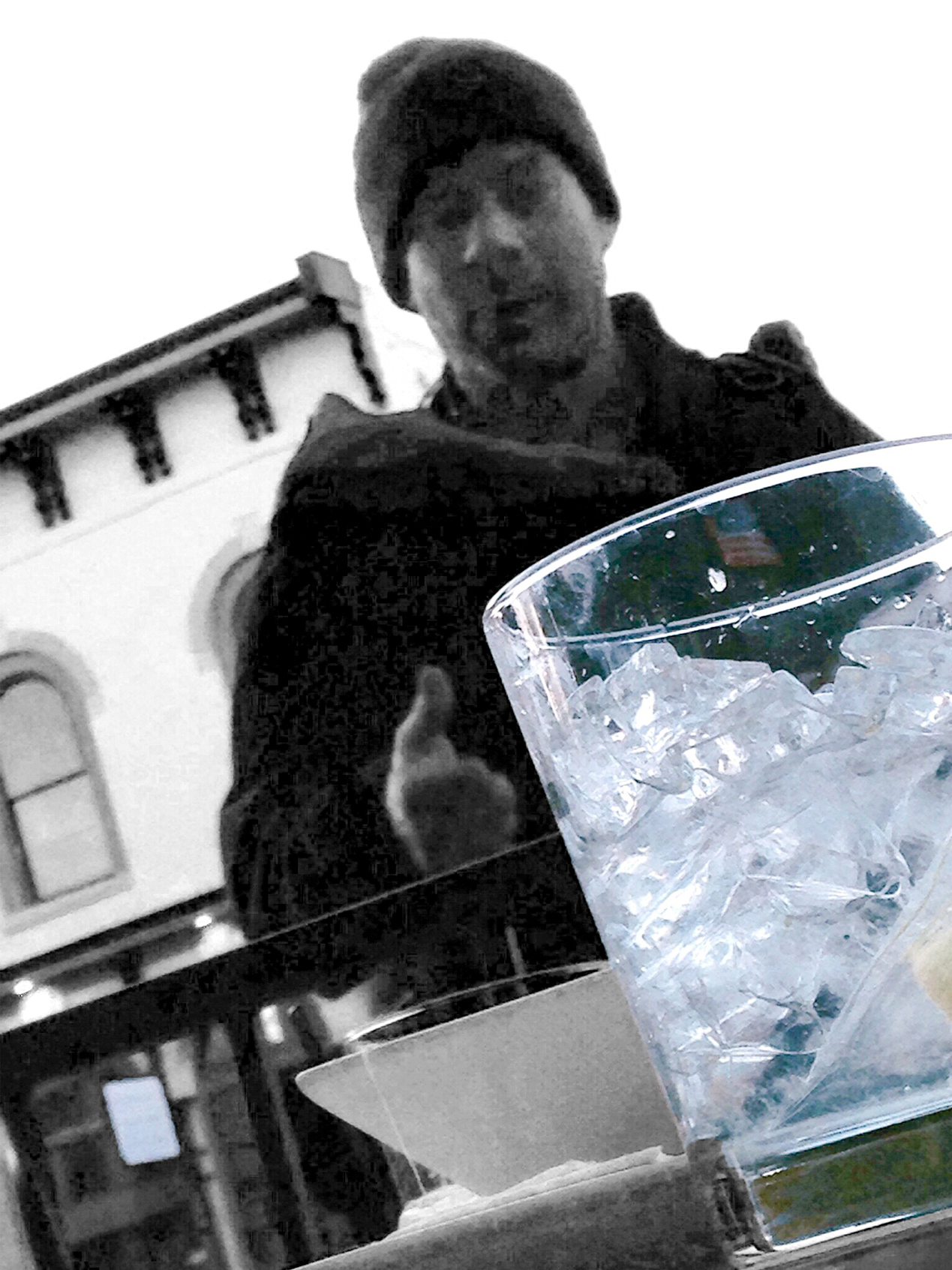“I’m from Detroit! I invented Motown!” the befouled stranger said, as he stepped up to the rail that separated me from the downtown foot traffic. I was lingering over a happy hour cocktail at an outdoor cafe on an unusually warm, winter day. I had been considering the unseasonable warmth, wondering if it was yet another manifestation of our degrading climate and ecosystem and feeling a little uptight. Pulling me from my existential anxiety, the stranger continued. “I molested the Marvelettes!”
“No kidding,” I said.
Here’s what I see. If you’re alone, without financial resources and you suffer from schizophrenia, extreme cases of post traumatic stress disorder, or a cognitive cornucopia of other mental illnesses, you will be invited by the rest of society to join the hordes of the invisible suffering. If you’re not able to confine yourself to societal norms then be ready to don the camouflage of blackened dirt and city grease. That filth makes it almost effortless for the rest of us to dehumanize you. So, if your soiled and cognitively unhinged, lacking any form of love, compassion and money, then your luck has left town, taking along your humanity for the ride. Money seems the divide between a trajectory towards care and ceaseless suffering for the mentally unstable in our society. I can’t believe this is somehow okay.
Many refuse to lunch at outdoor tables because of such impromptu interactions with the unbalanced and less fortunate homeless . But it wasn’t always like this. There was an understanding held by many ancient, indigenous societies that were much more aligned with the earth and how living systems work. These ancient cultures would revere those members of their ranks whose mental wiring was crossed in so disparate a way from the rest of the tribe. These people were considered messengers from worlds that most couldn’t begin to imagine. They were the authentic artists, which was a more shamanic role back in those pre-industrial times.
The First World in our modern age is defined by comfort and comfort has no need for authentic artists, so we cast them out to the chaos of street life. Those of us who are privileged are able to completely disconnect from those who may make us uncomfortable. We consider it a perk of privilege. But this approach is actually doing serious damage to our psyches. We are naturally built for compassionate connection like we are built to breathe air. That’s the way the living system works. It takes a lot of misspent energy to go against the blueprint of who we actually are, to go against the natural flow of life. Embracing those made up stories of entitlement that we blanket ourselves in to stave off the “ugly” and “objectionable” is crushing our souls. This is what the authentic artists have to teach us.
Every time we turn our backs to that inherent inclination towards connection we are preforming a violent act on ourselves. Over time we develop our own type of mental illness, the insanity of “normalcy”. We accept it as normal to completely disregard the suffering of a fellow being who may be a mere few feet away.
Whenever I come across anyone regarded as a lunatic on the streets I remember a potent quote from the great spiritual teacher, Jiddu Kirshnamurti: It’s no measure of health to be well adjusted to a profoundly sick society.
Being forged by disconnected, privileged materialism is a listless and sick way to live. Those of us who have worked hard to establish our worth as determined by society often don’t recognize what the shamans, healers, wise crones and other such sages, mystics, artists and poets of past ages recognized; that everyone is worthy of attention. Everyone born on the planet has come with an offering for all of us. Especially those whose reality tunnels are so shadowy, mysterious and other-worldly. They have gifts for us! And to disregard the offering of any being in order to maintain the facade of societies normalcy and comfort in all its flat-screened glory misses the entire point of being here.
Elders from the First People of this land say that everything is sacred and we are all related. What if we began to live as if those elders were onto something? What if that was the point of being here?
“I wrote The Track of My Tears,” the man said, noticing my acknowledgement of him.
I pulled out my wallet and investigated. There was a lone five dollar bill. “I like that song,” I said. “That’s worth a Fin.” He gratefully accepted the bill as we shared a breath.


